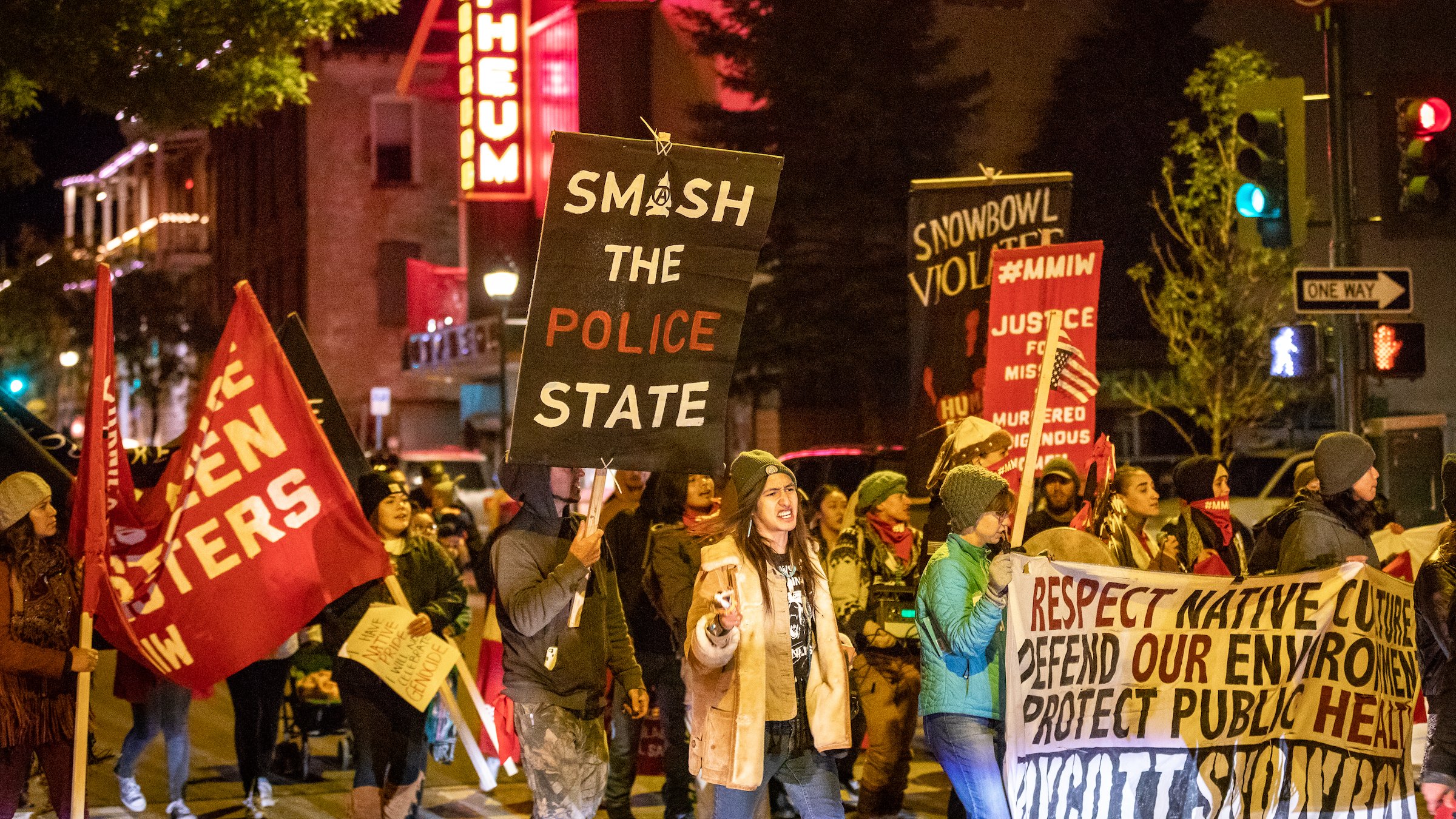Flagstaff, Arizona, likes to think of itself as a liberal space within the historically “red” Grand Canyon State. It has been the only city to raise its minimum wage above the state’s, and in October 2018 it decided to recognize Indigenous Peoples’ Day in the place of Columbus Day.
But Klee Benally, a prominent local anarchist and indigenous rights activist, sees hypocrisies within the city’s progressive image. He criticizes its anti-camping ordinance that contributes to the criminalization of people experiencing homelessness, the disproportionate targeting of people of color by the Flagstaff police, and what he sees as a lack of urgency surrounding missing and murdered indigenous women in the region.
For years, Benally and others have spoken out about the city’s role in the ongoing desecration of the San Francisco Peaks, a sacred site for Native American peoples in the region. The city of Flagstaff is complicit in a project that pipes sewage to the Peaks, where it is used to make artificial snow for skiers at the private Arizona Snowbowl resort. The arrangement has existed for years, as has local indigenous activists’ opposition.
So on Flagstaff’s first Indigenous Peoples’ Day, on October 8, 2018, Benally and other indigenous rights activists and anarchists took to the streets.
“We were protesting to draw attention to how the city benefits from the desecration of local indigenous culture,” Benally told me.
Among those paying close attention to the protest was the Flagstaff Police Department.
In an email obtained through a public records request, the department’s deputy chief summarized the day’s events: “The group grew to about 40-50 people and after speeches were made in the square the group began to march west down the sidewalk carrying several signs. Our supervisors attempted to speak to a couple of the apparent leaders, Klee Benally being one.”


